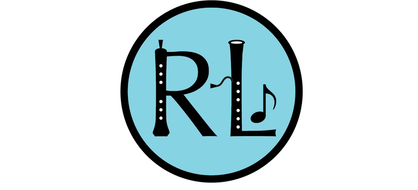Beginner Supplies:
Taking Care of Your Instrument:
Common Sense Safety Tips:
- A water container for soaking reeds. Please use fresh, clean water each time you play.
- Cork grease (parrafin wax for bassoons if they have thread instead of cork)
- Swab (Hodge brand on Amazon is good) - one silk swab for oboists. Bassoonists need 2 swabs: a bocal swab and also a swab that fits both the wing and boot joint of the bassoon.
- A chromatic tuner and a metronome - phone apps are great
- At least 3 working reeds in a reed case - do not use the reed shipping containers...this causes cracking and mold growth (if you must, at least make some air holes).
- Cigarette paper (oboes only) - for getting water out of the tone holes...any strong tissue paper also works. I use OCB brand "ungummed" cigarette paper. Microfiber pad dryers work too.
- For wooden instruments: case humidifier
Taking Care of Your Instrument:
- When assembling, be careful not to bend the keys or rods. Holding each piece where your fingers would normally go is best.
- Always swab your instrument after playing. If oboists do not swab, water clogs the octave vents and tone holes. Bassoons collect water in the boot joint that cannot escape, and it's super gross.
- Avoid eating right before playing, or at least brush your teeth.
- Bassoonists, let your reeds dry out fully with the reed case open after practicing at home. They retain moisture for a long time and can grow mold.
- Mrs. Landers can adjust your instrument if keys are not sealing properly. Most oboes and bassoons need this occasionally, even if you are careful.
- Wooden oboes should have the bore oiled every once in a while (every 6 months or so). Ask Mrs. Landers to do this.
Common Sense Safety Tips:
- NEVER leave your instrument unattended - on a chair, on the floor, on the couch, even on an instrument stand...just don't walk away from it at all. Either bring it with you, put it in the case, or hand it to a person you trust. I am often appalled by the careless treatment of instruments, especially at schools.
- Never EVER leave your instrument in a car or an extreme hot or cold environment. Avoid playing outside if you can help it.
- When walking around the band room, your reed should be either in your mouth or a reed case.
- Bassoonists, put your bocal inside your bell when walking around.
- When swabbing, NEVER keep pulling the swab if it starts to get tight. Instead, pull it back out the way it went in. If it gets stuck, DO NOT use a tool to try to remove it (bore scratches cause permanent damage and affect playability). Take it to your teacher or a repair technician to remove it.

